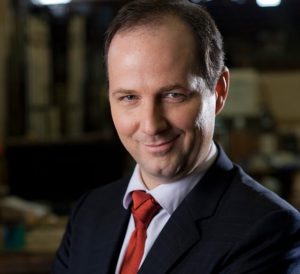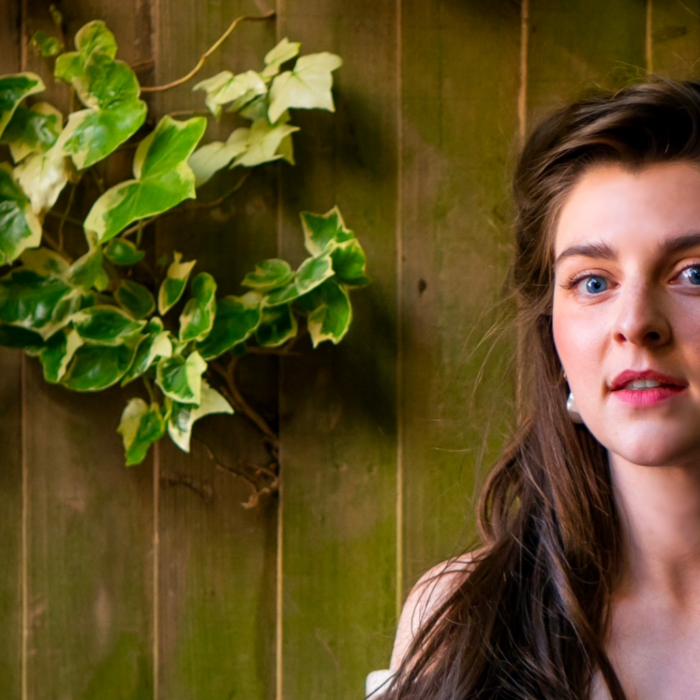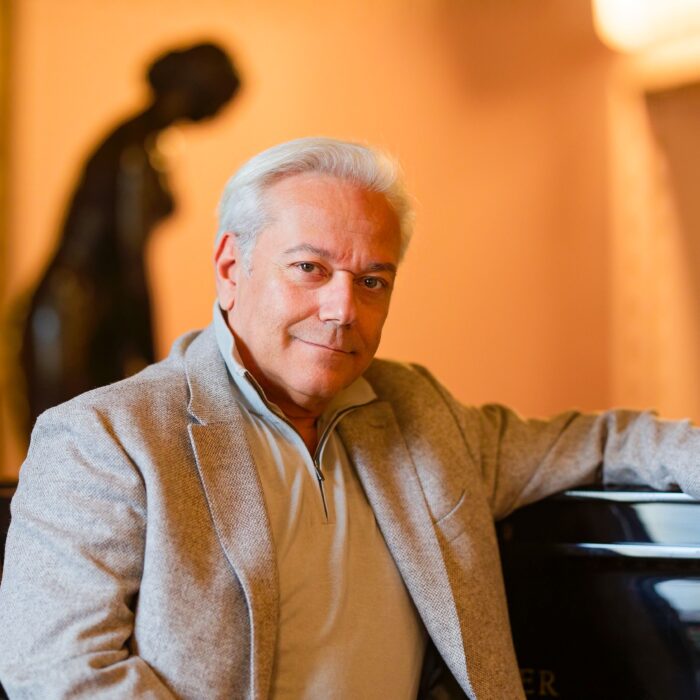
Voice Tasting – How Matt Burns & Magnvm Opvs Tasting Concerts Bring Singing & Wine Together
By David SalazarCreamy. Sweet. Intense. Warm. Thick. Bubbly. Dark. Light. Potent. Vibrant.
Any one of those words could be used to describe an operatic voice. But as Matt Burns, founder of Magnum Opus Tasting Concerts (spelled officially Magnvm Opvs” to emphasize “voice” and “vine”), could tell you, they can also be used to represent wine.
With his project, founded rather recently, the bass-baritone, who is coming off a run of “La Mère Coupable” at On Site Opera in New York, he has sought to not only make the connection but fortify it.
“What I find compelling is the language that the wine professionals, sommeliers, and winemakers all used to describe wine is parallel, if not identical, to the language we use in the opera world to describe the voice,” he told OperaWire in a recent interview. “Opulent. Rich. Smooth. Creamy. Austere. All of these terms can be found in critical reviews and voice lessons for years.”
Burns’ passion for these two seemingly distinct worlds cropped up in rather different ways.
An Operatic Journey…
His operatic journey came about in his student years during his time at the Manhattan School of Music and Julliard.
“I caught the bug. I saw a performance of ‘Don Giovanni’ in Virginia as an undergrad and I laughed so hard at Leporello. I really felt that I could do that,” he noted.
His passion grew when he came to learn of the art of George London, which sealed the deal for him.
“I couldn’t believe the amount of colors coming out of his face.”
…And A Vineyard-Laden One
Burns’ dedication to the world of the vineyard came about in a rather different manner. More of a chance encounter if you will.
While working with the Opera Theatre of Saint Louis in 2007 he stayed at the home of Dr. Kenneth and Marjie Smith.
“[Kenneth] pulled out 1978 Robert Mondavi Cabernet Sauvignon and let me try it,” he narrated. “And it was one of the most sublime things I ever tasted. In fact, I didn’t understand. So, we talked about. As I gained an understanding of the depth and process of wine, it really turned me on to it.”
From there, he took a trip to Southern Italy and studied up on the wines he would be tasting.
“I’ve basically been on a path of self-education since that moment.”
He would wind up with a job at a boutique wine store as the wine tasting secretary
But that was 2008. In 2016, everything changed for the singer.
A ‘Great Work’ Begins
He was driving cross-country when he passed by a German vineyard in southern Italy. The billboard read, “German wine, German food, German music.”
“In that moment, the inspiration came upon me to take the language of wine to profile singers’ voices and then find a wine that matches those and put on tasting concerts,” he revealed.
So he set out to do research on what was out there. He found a few similar combinations, including “Bourbon and Baritones,” among a few others, but nothing that matched his interest in pairing wines and voices.
He consulted his idea with a number of mentors and friends, including David Guliano, a baritone and beverage director in Manhattan and David Kech, a bass-baritone who is also a master sommelier, and both supported the concept.
“People I brought this up to literally said to me, ‘Voice and wine. They’re the same thing.’”
And so Magnvm Opvs Tasting Concerts (MOTC) was born.
Tasting Wine & Music
On the surface, MOTC is little more than wine tasting with an added musical component. But Burns strives to dig deeper into the connections between the two worlds.
In the same way that every wine tasting comes with its own formula, the bass-baritone outlines his process with his audience.
“I introduce elements to audiences to tune in and understanding the finer points of the voice beside loud or high notes or it’s a soprano,” he noted. “I like saying that it’s not just a soprano, but a crystalline soprano and has a golden hue.
“Or it can be rich, opaque, opulent wine that is purple in color and has a lot of acidity. That could be a rich bass-baritone like Eric Owens or Morris Robinson.”
Every single program goes through an intricate process that includes having an understanding not only of the voice types but their origins. Then he seeks out a wine that might fit the voice.
But it doesn’t stop there. He also looks at the repertoire choices to see how to find a suitable bottle that takes into account the style of the music as well.
“It’s all about immersing the audience in the world of the story through the wine and the voices.”
In a recent concert, he had two sopranos, his wife Anne-Carolyn Bird, a light lyric voice who was to be juxtaposed with that of Stephanie Marx, a darker and rounder quality. The two sopranos were to sing two contrasting Puccini arias; Bird was to take on “Qui bel sogno” from “La Rondine” and Marks was performing “Vissi d’arte” from “Tosca.”
“I picked two different Chiantis for this concert, both representing Puccini in this element. One was light and fruity and bright for ‘La Rondine.’ The other one was a Corsignano. It was earthy and rich and round and opulent for ‘Tosca.’”
But picking the right wine isn’t always that easy. In fact, there is one particular musical master that proves tricky when it comes to wine selection.
“It’s harder when I go into Mozart,” Burns revealed. “He was Austrian. His librettist was Italian. His subject matter was Italian. And then I have American singers doing it. What country do you go with?
“In those cases, I try to go for something that represents many of those aspects. I found a Northern Italian wine on the border with Austria that had a really light grape blended with a rich grape. So, it had Italian, Austrian with these fruit qualities of American.”
The company is slated for a few performances around the states, with a prominent showcase at Wolf Trap Opera featuring Heldentenor Simon O’Neill. As of this writing, Burns has yet to put together the wine list for the showcase but noted that “It’s going to have a lot of energy in it. Simon’s voice is so sonically powerful.”
The Future
Looking ahead, Burns has ambitious goals for the organization, his main desire to perform an entire opera with the wine tasting experience locked in.
“The audience sits there with samples of wines that would represent the singers and the emotion of the scene. Almost like a choose your own adventure,” he explained. “Kind of like the character of Figaro walks on and you have this earthy rich red wine from Italy. And then Susanna walks on and you have a bubbly, effervescent quality to it. And the audience will have a placemat that will go along as they are watching the story. And if they want to go deeper with understanding the voice, they have the wines to go with it.
“For example, they might go, ‘I’m hearing this voice, but I don’t really know how to place it. However, I know there is this wine that is sparkling and bubbly. That must be Susanna.’ And then they can associate the qualities of the wines with the voices. And it’s a throwback to the old days of opera when people would stand in the audience and eat their food and drink their wine while the singers were singing.”


